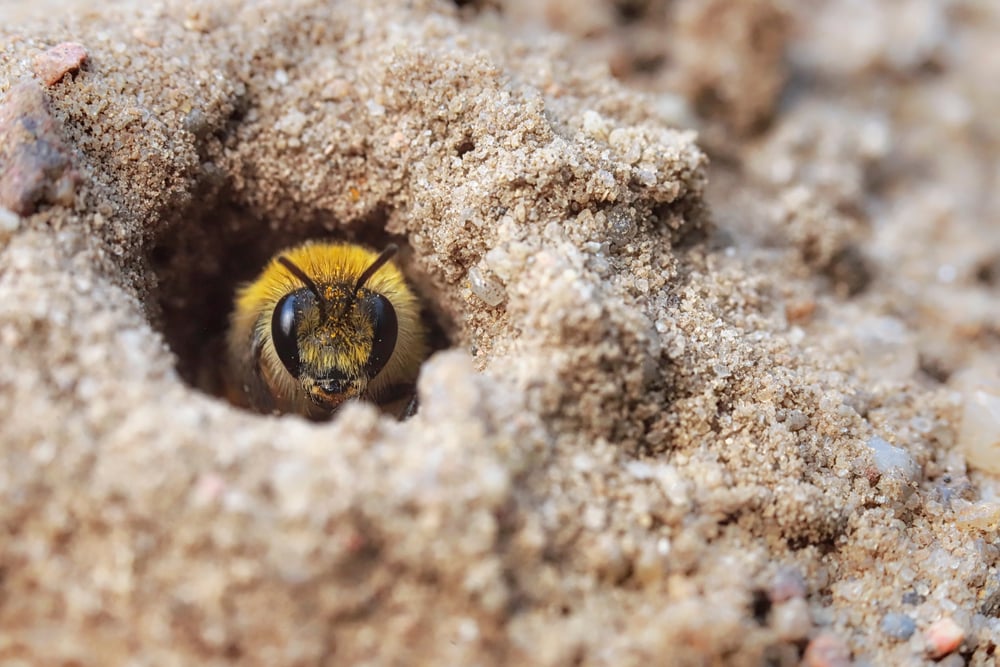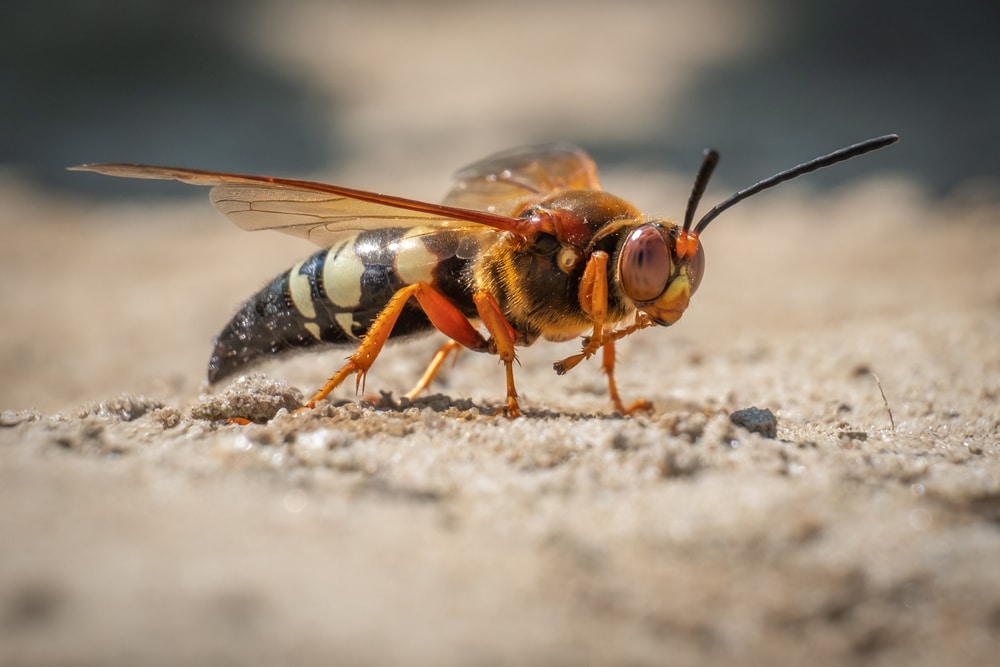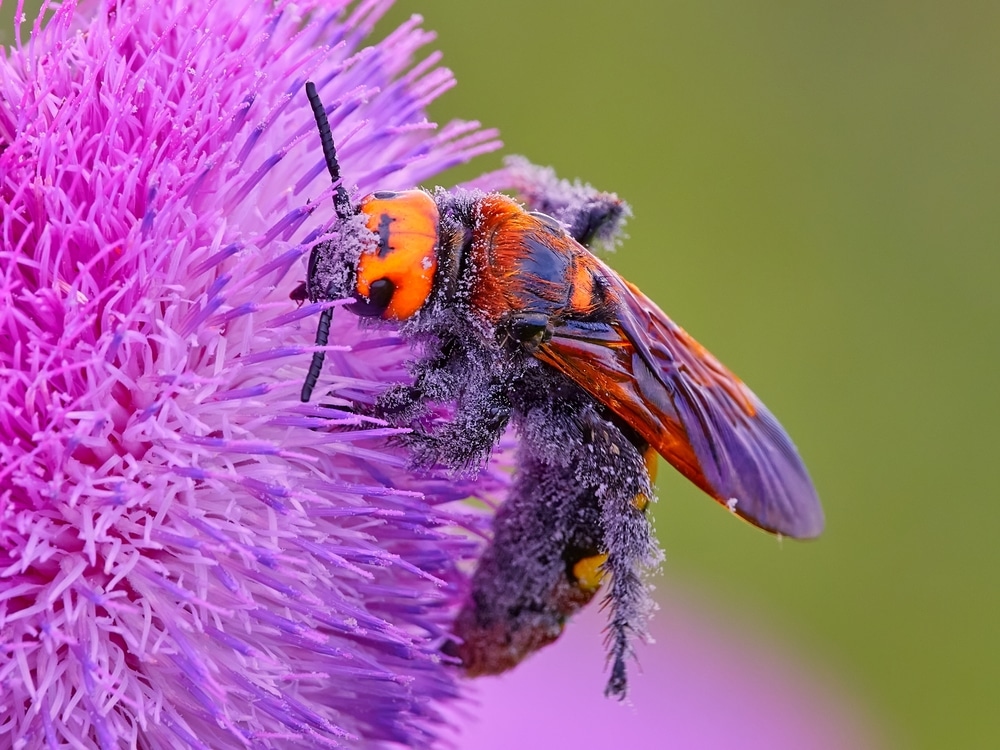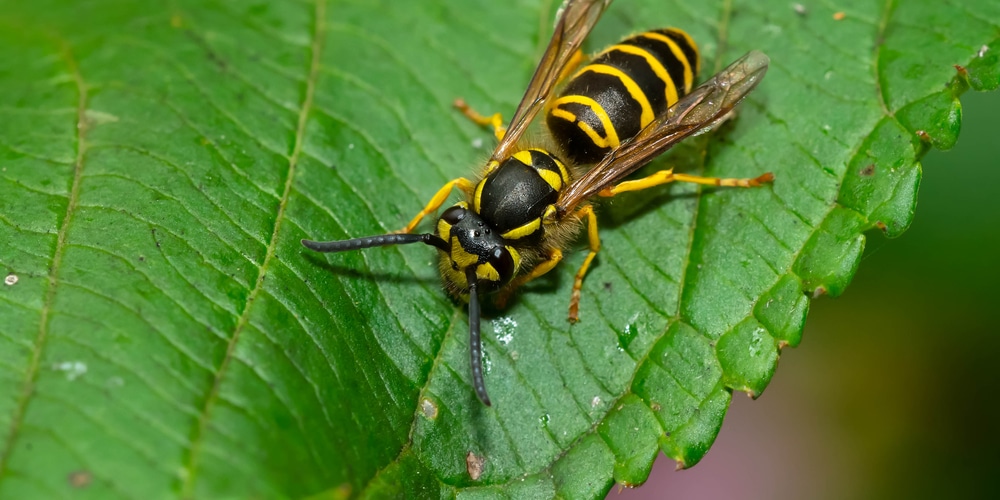There are a variety of bugs that live in our yards. Depending on environmental conditions and lawn maintenance, various types of bugs will invite themselves to take up residence on your property. For example, flowers attract bees, and ants can make a mound in any locale. However, did you know there is also the chance you may have flying insects that can dig holes in the ground?
Whenever you pass by a mound with a large hole in the center, it’s a clear sign of a flying insect burrowing underground. This article will introduce you to the different insects capable of flying and digging holes in the ground.
Digger Bees

When you think of bees, you don’t imagine them outside honeycombs and pollination. Bees have no reason to stick to the ground unless they are sick or injured.
However, digger bees are a unique type of solitary bee that nest underground. Seventy different species of these ground bees mainly reside in the western states and areas with sparse grass.
Female digger bees prepare underground nests with enough pollen and nectar to support the larvae. The male digger bees are more supportive and dig holes towards the surface before the females reproduce.
Digger bees are no bigger than a centimeter and have no aggressive behaviors. The good news is, you can mow your lawn or garden without worrying about a bee attack.
Cicada Killer Wasps
Cicada Killer Wasps are another variation of a solitary bee with red, rusty heads and a black-and-yellow abdomen.
These wasps are similar to digger bees in their choice of habitat. The females take control and burrow below ground level to create nesting areas for the larvae.
The mounds created by the wasps act as a hiding spot until they emerge to hunt for cicadas. Any prey is stung and flown back underground for feeding.
Cicada Killer Wasps enjoy digging holes in dry, sandy soil exposed to sunlight. Whether it’s the dirt under bushes or bare corner patches, you should keep an eye out for these areas in your suburban home.
Scoliid Wasps
Following behind the Cicada Killer Wasps are another type of solitary insect known as scoliid wasps.
These critters have thicker bodies with dark blue wings and fuzzy brown abdomens. You can find them in abundance around the late summer and early fall seasons.
What sets the scoliid wasps apart from the other flying insects is their motivation to dug. Instead of building a nesting ground, these wasps prioritize their food supply.
Female wasps dig through the soil in search of grubs and beetles. They paralyze the beetles and lay an egg nearby for the larvae to feast after hatching.
Scoliid wasps like to rest on flowers during the day and return to their holes during nightfall. Their flight patterns are low to the ground and can be hostile when disturbed.
Spider Wasps
Spider wasps are solitary insects with longer limbs and prey around loose soil. They can live in the woodlands, wetlands, and most urban areas.
Their name comes from the fact that they hunt for spiders to feed their larvae upon birth. The female wasps search for free-living spiders without a web and paralyze them for easy dragging.
Some spider wasps can build potential nesting areas near mud mounds and chambers or burrows created from beetles or other prey.
Yellowjackets
Yellowjackets are the only type of social wasps on this list. These insects can build homes in trees and hollow logs and are known to be aggressive towards people.
Yellowjackets rarely build their own underground nest. Instead, they take over rodent burrows and create colonies throughout the season.
When their food source becomes scarce, yellowjackets might take over nearby burrows with a connection to potential grub and trash to eat.
Conclusion
Flying insects that dig in the ground do it for a safe place to reproduce and feed their larvae.
If you spot any winged bug hovering around the ground, they won’t attack you if you mind your business.


